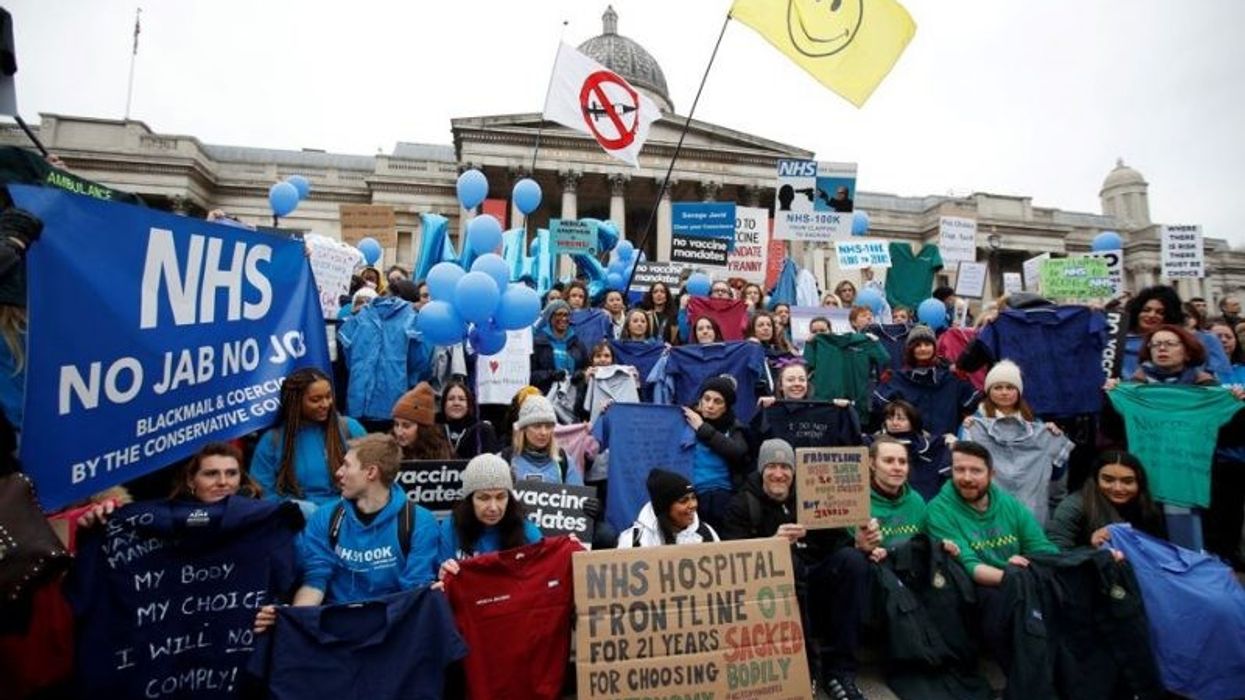BRITAIN plans to revoke its decision to make Covid-19 vaccination mandatory for health workers in England after warnings that an already-stretched service could face serious staff shortages.
The NHS race and health observatory, which raised concerns last year that any mandatory Covid vaccination policy could be potentially discriminatory, welcomed the move.
Health secretary Sajid Javid said on Monday (31) the government would launch a consultation into whether the policy was still needed with the emergence of the omicron variant, which is more transmissible, but results in milder symptoms.
“Subject to the responses…the government will revoke the regulations,” Javid told parliament.
“While vaccination remains our very best line of defence against Covid-19, I believe that it is no longer proportionate to require vaccination as a condition of deployment.”
Also Read | 'Boris Johnson has lost the support of his party'
The policy would have required employees in the NHS and social care workers to be fully vaccinated by April 1. This means they would have to receive their first shot this week to meet that deadline.
The policy announced in November met resistance from some workers, with warnings that sacking those who did not comply could leave the health service facing significant staff shortages. A number of Conservative MPs also criticised the decision.

Dr Habib Naqvi, director of the NHS Race and Health Observatory, said, “Further insight is required, which is why we raised concerns last year that any mandatory Covid vaccination policy could be potentially discriminatory, widen inequalities and increase the likelihood of workplace bullying.
“Findings from our research on Covid-19 vaccinations and health and social care workers, published last week, found that workplace pressures and experiences of discrimination were affecting vaccine uptake decisions with respondents unable to openly discuss their concerns and being dismissed as ‘anti-vax’”.
He added: “Critically, the research also found that workplace environments in which vaccination decisions are informed and voluntary are more likely to lead to vaccine uptake.”
More than 75,000 health workers – about one in 20 employees – have not had a Covid vaccine, according to the NHS.
The Royal College of Nursing and the Royal College of Midwives had previously pushed for the government to extend the deadline to prevent a mass shortage in the health service, saying the policy amounted to “self-sabotage”.
England has abandoned Covid-19 measures introduced to combat the omicron variant, including compulsory mask-wearing on public transport and in shops and guidance to work. Scotland, Wales and Northern Ireland decide their own measures, which have generally been stricter.





